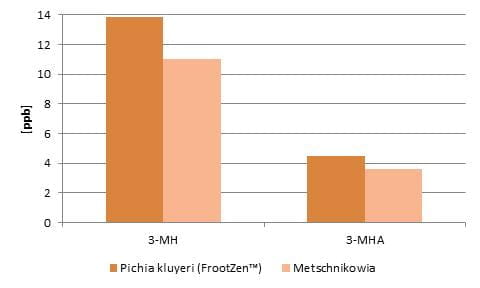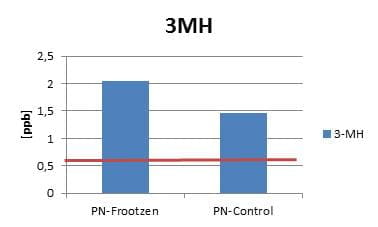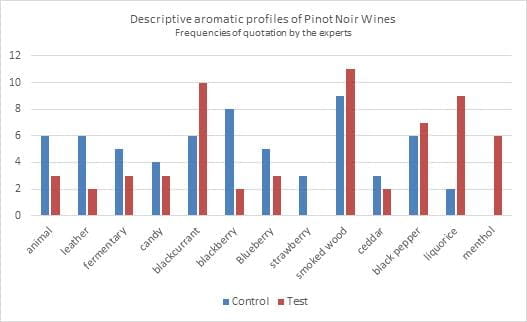VINIFLORA® FROOTZEN® is based on a selected strain of the wine yeast Pichia kluyveri found naturally in New Zealand grape juice. This Pichia yeast product helps wineries meet consumer demands for natural, authentic and fruitier wines.
This yeast should be used in sequential inoculation, where FROOTZEN® is inoculated first, and two days later, when the fermentation temperature is approx. 18-19 °C, a second yeast is inoculated (generally a Saccharomyces cerevisiae), as FROOTZEN® cannot support more than 4 to 5% alcohol. This scheme of two sequential inoculations mimic what happen in a wild ferment, bringing the best of two worlds: the complexity of successful wild fermentation with the safety and technical security of a controlled, alcoholic fermentation with selected strains.
FROOTZEN® is particularly suitable for white and rosé wines, but recently some new tests have demonstrated how interesting it also is for developing well-balanced, elegant red wines (figures 1, 2 and 3).
FROOTZEN® delivers very elegant red wines, thanks to its ability to boost thiols in Cabernet-Sauvignon, Cabernet Franc, Syrah (Shiraz), Merlot or Pinot Noir and high fruit intensity rosé and white wines.
FROOTZEN® is unique on the market and unmatched in terms of converting flavor precursors.
Figure 1. Effect of Pichia kluyveri (Pk) on the volatile thiol concentrations of Chilean Sauvignon blanc. The co-inoculation of FROOTZEN® resulted in more volatile thiols (3-MH = mercaptohexanol and 3-MHA = mercaptohexyl acetate), compared co-inoculation with Metschnikowia.
Figure 2. Effect of Pichia kluyveri (FROOTZEN®) on thiol production in Pinot noir from Chile (2014)
Figure 3. Sensory profile of FROOTZEN® (test) in Pinot noir from Chile (2014) with a significant amount of blackcurrant flavor



